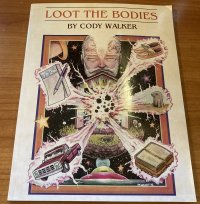
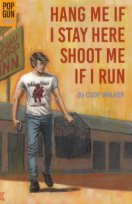
I bought these books last weekened at Rublecon where Cody Walker was the only author or comic book artist (actually, he’s both) present. And as I was done with The Emerald Elephant Gambit shortly thereafter, I delved into these books in fairly short order.
I dived into Hang Me If I Stay Shoot Me If I Run first. It’s a short (122 pages) book which includes the title novella along with a handful of short stories set in the fictional town of Pinhook, Missouri, which just happens to be up the road (Highway 13) a piece like Bolivar, Missouri. Where the author is from. In the novella, a kid from the area returns with a dead dog in his trunk and holes up in a local motel. He has just burglarized a home in the Rivercut neighborhood (just east of Nogglestead). He meets up with the housekeeper/night manager of the motel, a woman of her own ill repute, and they decide to rob a local church run by a preacher with a predilection for philandering and then the local fair run by a man whose money and influence comes from dodgy sources, including the manufacture of meth. When the final reckoning comes, though, the young man is willing to sacrifice himself for revenge. Other stories in the book deal with a gay couple trying to live their lives in secret in Pinhook; an older woman finds that strangers unburden themselves to her; a young woman deals with the attentions of young men and a skeevy uncle as she hopes for college acceptance which will take her away; an older man has had a health episode and is supposed to be resting, but he wants to go to the coffee shop to trade knives; and a young couple seeking to get married finds some resistance from the church.
I mean, I can see a little bit of Winesburg, Ohio in it, albeit with a bit more modern sensibility and them to it. It’s not poorly written, but it does lack a little depth to it that I’ve kind of alluded to before. Kind of like college level classwork or stuff you might find in a writing group. Of course, back in the day–the early part of the 20th century–they filled whole magazines with these kinds of stories.
Loot the Bodies is a collection of poetry. Interestingly, most of the poems are pretty short–maybe the longest clock in at under 30 lines–but the book is printed on very large paper and not in 4×6 size, which means there’s a lot of white space in the 88 pages of poems. The book also includes a couple of short stories at the end; again, slice-of-life material. The poems are okay. Better than Rupi Kaur instapoetry and better than the grandmother poetry I often read. Again, the sort of thing that you might have spotted in mid-century general interest magazines in the 20th century.
Which is odd because the author looked too young to have spent too much time in the last century.
At any rate, I have, what, six more of the author’s books from Rublecon? I’m not feeling compelled to read them all at once, but they’ll be pleasant enough when I get around to them.



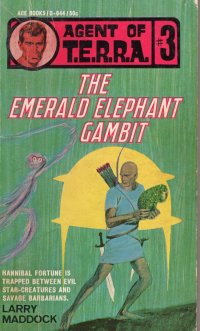 Since I just read the second volume in the Agent of T.E.R.R.A. series (
Since I just read the second volume in the Agent of T.E.R.R.A. series (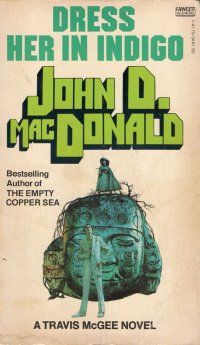 I guess it has been
I guess it has been 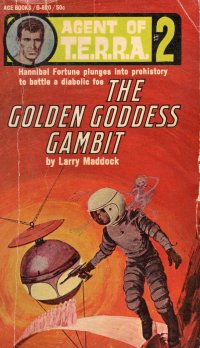 I picked up this little 1960s-era paperback
I picked up this little 1960s-era paperback  Facebook must be reading my blog as it seems to know that I’ve read a pile of Howard this year (
Facebook must be reading my blog as it seems to know that I’ve read a pile of Howard this year (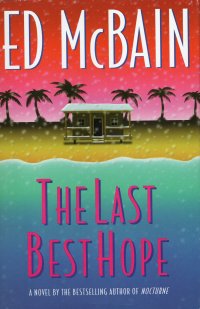 I passed over this book which was on the outer rank of books in the hall for a number of years. Even when I’m in the mood for a McBain, which happens from time to time (such as when I am working on the
I passed over this book which was on the outer rank of books in the hall for a number of years. Even when I’m in the mood for a McBain, which happens from time to time (such as when I am working on the  As I mentioned when I bought this book
As I mentioned when I bought this book 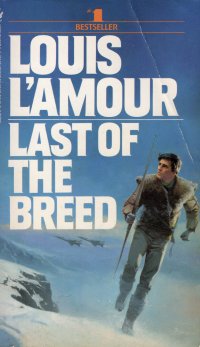 After reading
After reading 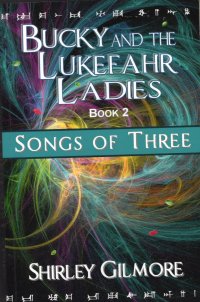 This is the second book in the Bucky and the Lukefahr Ladies series; I read the first,
This is the second book in the Bucky and the Lukefahr Ladies series; I read the first,  I got three of these little Salesian Missions poetry collections
I got three of these little Salesian Missions poetry collections 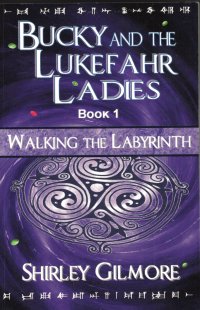 I got this book and four others in its series and a related stand alone novel
I got this book and four others in its series and a related stand alone novel 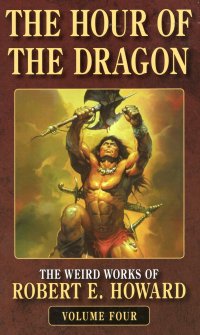 I was going to say that I just read this, but it turns out that “just” in this case means ten years ago as this title, the only Conan novel that Howard wrote, was included in
I was going to say that I just read this, but it turns out that “just” in this case means ten years ago as this title, the only Conan novel that Howard wrote, was included in 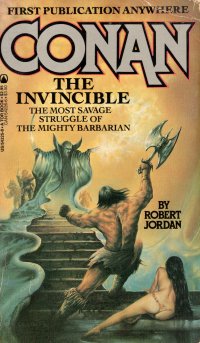 This book is another of the paperbacks I bought in Berryville
This book is another of the paperbacks I bought in Berryville 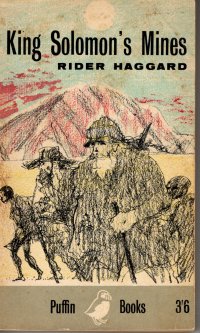 I picked up this book, another
I picked up this book, another 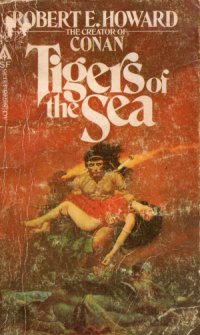 Ah, gentle reader. You are forgiven if you think that I’ve not been reading much these days, but it’s sort of true. I’ve divided my evenings between watching DVD sets that I bought twenty years ago (like
Ah, gentle reader. You are forgiven if you think that I’ve not been reading much these days, but it’s sort of true. I’ve divided my evenings between watching DVD sets that I bought twenty years ago (like 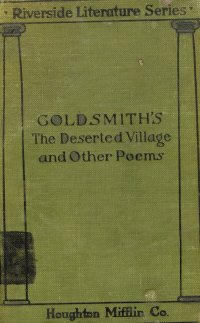 After reading a century-old copy of
After reading a century-old copy of  I bought this book in
I bought this book in 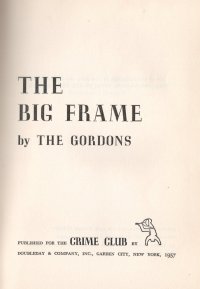 To be honest, I don’t know where I got this book. It doesn’t show up in almost twenty years’ worth of Good Book Hunting posts, and it has no distinguishing price marks. So did I pick it up before the turn of the century? Inherit it from my aunt? Who knows? All I know is that it is bound in the light brown Walter J. Black-esque cover used by book clubs that sent you books on subscription in the middle of the 20th century. This is, in face, a Doubleday Crime club selection. Only one book in the cover, though, unlike the three-in-one book club editions of which I have many.
To be honest, I don’t know where I got this book. It doesn’t show up in almost twenty years’ worth of Good Book Hunting posts, and it has no distinguishing price marks. So did I pick it up before the turn of the century? Inherit it from my aunt? Who knows? All I know is that it is bound in the light brown Walter J. Black-esque cover used by book clubs that sent you books on subscription in the middle of the 20th century. This is, in face, a Doubleday Crime club selection. Only one book in the cover, though, unlike the three-in-one book club editions of which I have many.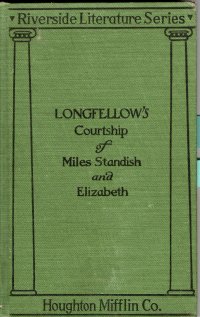 I got this book as part of a
I got this book as part of a 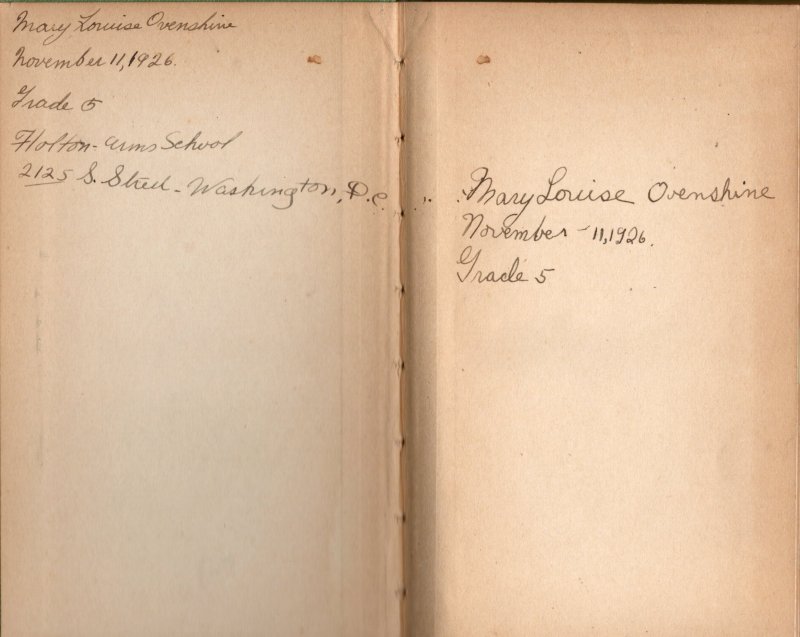
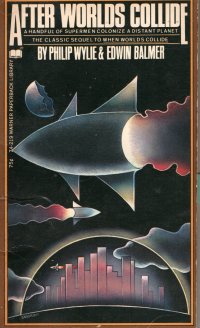 When I bought this book
When I bought this book